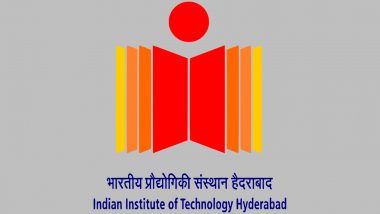Barely ten days after the world observed International Day of Nurses 2018 to celebrate the contributions made by nurses to the society, Lini Puthuserry, a 31-year-old nurse from Perambra, Kerala died in the line of duty, trying the save the lives of patients afflicted with the deadly Nipah virus. Lini, who had taken ill after treating two brothers, succumbed ostensibly to Nipah virus at EMS Memorial Cooperative Hospital at Perambra. The cause of her death has not been attributed to Nipah yet. But if it truly was the deadly virus that claimed her life like the nine others who died in Kerala, it makes one wonder whether the right safety protocol was followed to protect healthcare workers from infections at the hospital where she worked.
Nursing is a profoundly gratifying profession which requires skills, knowledge, compassion and patience -- a linchpin in the healthcare industry, but the sheet-anchors of India’s healthcare system are underpaid, underappreciated but overworked, devalued as assistants to doctors and often subjected to the wrath of the patients and their family. It’s little surprise why there’s a significant brain drain in India. As of 2017, India was short of 2.5 million nurses!
Skewed Patient-to-Nurse Ratio
Libin Thomas, the President of the Indian Nurses Association (INA), told LatestLY: “In India, we face a poor patient-to-nurse ratio. Ideally, the recommended ratio is one nurse for every five to six patients. Instead, we see a single nurse handle as many as 30 to 40 patients in a ward.” While the number of patients increases, there’s no proportionate increase in the hiring of nurses in the hospitals. The amount of workload and responsibilities loaded on the nurses can impair their mental peace, which also reflects in the quality of care that is given.
Health Hazards
Like Lini, many nurses are at the frontline of fighting infectious diseases; they are a high-risk group for catching infection since they deal very closely with patients. During the course of their duty, they are confronted with a range of health hazards of a biological, physical and chemical nature. “Apart from the mental stress, nurses are also subjected to immense physical stress. I recollect a time when I was a young nurse, all of 55kg. I was made to handle patients who weighed more than double my weight. I ended up with an injury shortly after,” says Libin.
Long Working Hours
Odd working hours is part and parcel of nursing as a profession. But it’s exacerbated by the shortage of staff in the Indian healthcare sector. This shortage translates to long working hours during odd hours of the day. The nature of the job requires a high level of accountability. Many nurses are overworked, some clocking in more than 12-14 hours a day.
Exposure to Violence
Nurses inevitably represent the medical institution and become the link between the patient and the doctor. Any misstep on the doctor’s or the institution’s part and the nurse becomes accountable. They are subjected to threats, abuses and physical violence at the hands of the patients and their family members.
Lack of Recognition
The service of nurses is both undervalued and undercompensated. Despite the long hours, terrible working conditions and high level of mental stress, there is no support system for nurses. Their performances are under recognised. The outcomes of the inspections conducted in the hospitals by Medical Council of India and the India Nursing Council are rarely shared with the nurses and are not acknowledged for their performance. “Despite a directive from the government to improve nurses’ pay in the country, Kerala Private Hospitals' Association challenged the salary revision and pay the nurses as little as Rs. 10,000 a month. How do they expect nurses to run a family with pay as less as that?” says Libin.
High Level of Mental Stress
Combination of all the above factors translates into high levels of mental stress in nurses. Sometimes, nurses are also expected to undertake roles that are not within their area of expertise. Apart from looking after the medical requirements of patients, nurses are also made to do the billing, keeping records of inventory, laundry, physiotherapy, etc., leaving them with very little time to care for patients. Nurses are also subjected to extreme exploitation at the hospitals they work for. Libin cites the 2011 suicide of Nurse Beena Baby at Asian Heart Institute at BKC, Mumbai, who committed suicide since she was fed up with the job and couldn’t quit without paying an Rs. 50,000 bond to the hospital.
Lini has left behind two sons, aged five and two, who are probably too young to understand the enormity of their mother’s sacrifice. In a poignant letter to her husband, Lini, knowing that her end is near, implored her husband to take care of their children. The excerpt reads:
"Sajeeshetta, am almost on the way. I don’t think I will be able to see you again. Sorry. Please take care of our children. Poor Kunju, please take him to the Gulf with you. Don’t leave them and go like (my) father did. Please. With lots of love… Kisses"
Her sacrifice is heart-wrenching and bears testimony to the altruistic nature of the nursing profession. She could have put her and her family’s life first and called in sick. Instead, she showed up at work, despite running a high fever. Travesty is not just that a young life was martyred; it’s that her death wouldn't foment a change. Let’s hope that Lini’s sacrifice helps focus the country’s attention towards the millions of healthcare workers like her who have been putting our lives before their own, without being compensated or even appreciated.
(References: Challenges faced by nurses in india-the major workforce of the healthcare system)
(The above story first appeared on LatestLY on May 22, 2018 06:54 PM IST. For more news and updates on politics, world, sports, entertainment and lifestyle, log on to our website latestly.com).













 Quickly
Quickly




















